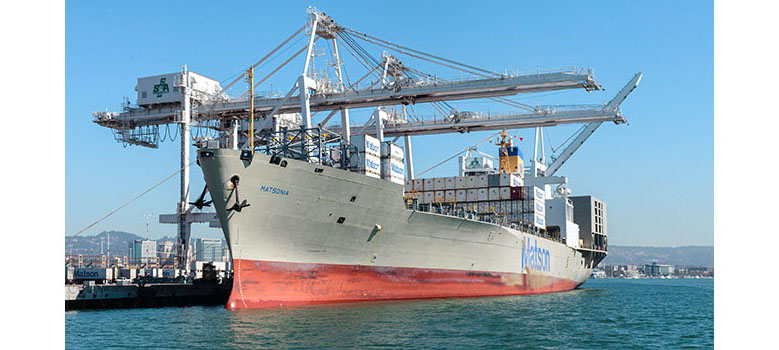As the U.S. government wages its next round of trade wars with China and other perceived belligerents, Bay Area logistics managers will have to become more creative.

Foreign Trade Zones, located near ports of entry, allow shippers to import goods with reduced duties under certain circumstances. Photo courtesy of Port of Oakland
BY PATRICK BURNSON
Published: November, 2018
As the U.S. government wages its next round of trade wars with China and other perceived belligerents, Bay Area logistics managers will have to become more creative. Industry experts are also pursuing a clever strategy that allows shippers to leverage their collective influence.
Foreign Trade Zones (FTZs) are scattered throughout the nation near ports of entry under the auspices of U.S. Customs and Border Protection (CPB), yet are generally regarded to be outside of CBP jurisdiction. With the quiet acquiescence of the U.S. government, shippers can import goods into the zone with reduced duties on an individual basis.
And although FTZs do not represent a “loophole” for tariff avoidance on goods destined for U.S. markets, they can give shippers a break on duties for re-export.
The announcement made last September that Canada, Mexico and the United States had agreed to replace the North American Free Trade Agreement (NAFTA) with the United States, Mexico and Canada Agreement (USMCA) has many trade analysts trying to determine its impact on FTZs.
Nick Bailey, head of research for the consultancy Transport Intelligence, noted that the new agreement contains provisions that affect several logistics intensive industries, including automotive manufacturing.
“One provision increases the threshold at which vehicles made in the region qualify for tariff exemptions,” he said. “The second provision mandates that, by 2023, at least 40 percent of a vehicle be made by workers earning at least $16 an hour if it is to qualify for tariff exemption. This provision is directly aimed at stopping the flow of jobs from higher wage locations in the United States to lower cost locations in Mexico.”
Matson Logistics Offers FTZ Benefits in the Bay Area
As this assessment clearly demonstrates, no single FTZ model is right for all shippers seeking to reduce costs and drive supply chain efficiencies. In this Bay Crossings interview, Bill Whelan, director of business development for Matson Logistics, explained how his company addresses specific needs of its shippers using Oakland-based FTZ56.
Bay Crossings: What major shippers are currently taking advantage of the zone?
Bill Whelan: Wine and spirit importers have been relying on us for duty deferral, avoiding excise taxes until needed, or re-export to duty-free stores. This includes military base exchanges, international flights or cruise lines. One of our largest customers is organic sugar, which goes on quota throughout the year and needs a place to stay outside U.S. commerce until the quota is lifted. Matson is a food warehouse as well as organic certified facility.
BC: What other kinds of quota items
are there?
Whelan: Over the years anti-dumping tariffs have been applied to solar panels, plywood and steel, so these too seek a place to stay duty free until the issues can be resolved. There’s been lots of interest here lately with the new tariffs being placed on imports.
BC: So how does that work?
Whelan: With our Value Added Packaging Division within the FTZ, we can combine import merchandise with domestic merchandise or high-duty imported components and then import the finished good at a lower tariff rate—an inverted tariff.
BC: Do you have an example?
Whelan: Yes. We can take a bottle of imported Scotch whiskey from Scotland, combine it with crystal goblets from France that have a high duty rate, and end up importing the finished good at the low duty rate of the whiskey as a holiday gift pack. One large program we have specialized in with our wine and spirit license is that we can bring wines in from all over the world in bond produce, apply proper bottle labels that comply with U.S. standards, and then import the wine from there.
BC: Finally, what advice do you have
for shippers now considering an FTZ
like yours?
Whelan: It’s all about relationships. Make certain the operators of the FTZ have good reputations with the local brokers and forwarders. CBP will also refer shippers to a respected FTZ when problems with their imports arise.
Patrick Burnson is the executive editor of Logistics Management. www.logisticsmgmt.com

